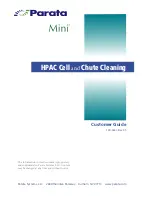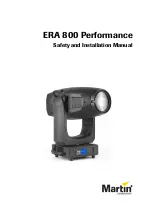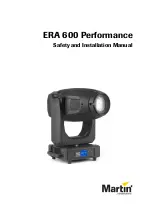
•
Disengage drives, shift the transmission to Neutral, set
parking brake, stop engine and remove key. Wait for all
movement to stop before adjusting, cleaning or repairing.
•
Shut off fuel while storing or transporting. Do not store
fuel near flames.
•
Park machine on level ground. Never allow untrained
personnel to service machine.
•
Use jack stands to support components when required.
•
Carefully release pressure from components with stored
energy.
•
Disconnect battery before making any repairs. Disconnect
the negative terminal first and the positive last. Reconnect
positive first and negative last.
•
Keep hands and feet away from moving parts. If possible,
do not make adjustments with the engine running.
•
Charge batteries in an open well ventilated area, away
from spark and flames. Unplug charger before connecting
or disconnecting from battery. Wear protective clothing
and use insulated tools.
•
Make sure all hydraulic line connectors are tight and all
hydraulic hoses and lines are in good condition before
applying pressure to the system.
•
Keep your body and hands away from pin hole leaks or
nozzles that eject hydraulic fluid under high pressure.
Use paper or cardboard, not your hands, to search for
leaks. Hydraulic fluid escaping under pressure can have
sufficient force to penetrate the skin and cause serious
injury. If fluid is injected into the skin it must be surgically
removed within a few hours by a doctor familiar with this
form of injury or gangrene may result.
5






































